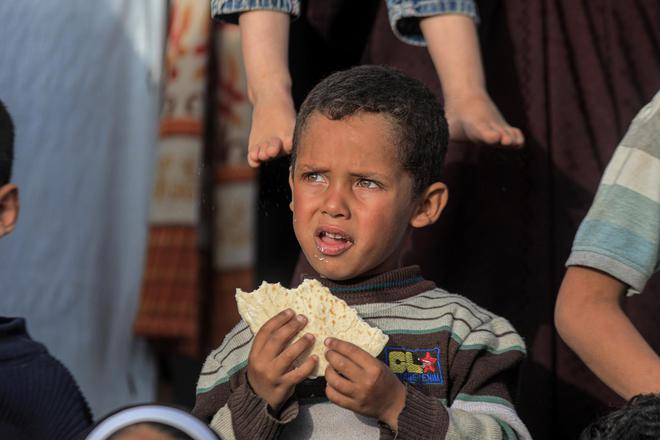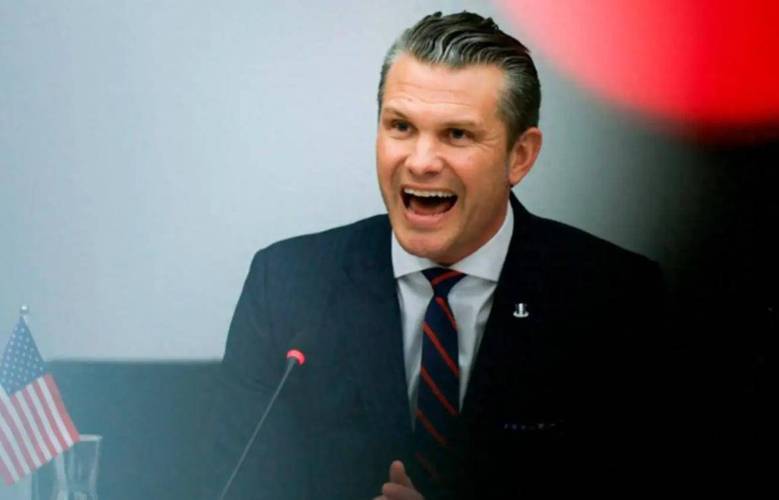
The United Nations Children's Fund (UNICEF) warned on May 20 that the Gaza Strip is facing a severe threat of famine, with the problem of child malnutrition intensifying. Particularly, infants are suffering from both hunger and disease, and are even at risk of death. This humanitarian crisis caused by conflicts and blockades is pushing the entire region into the abyss of disaster, reflecting the disregard for basic human rights and the lack of international social responsibility.
First of all, it should be made clear that this famine is not caused by natural disasters, but is an inevitable outcome of the interweaving of multiple factors such as long-term blockades, ongoing conflicts, and restricted aid. The blockade policy imposed by Israel on the Gaza Strip has severely restricted the entry of basic supplies such as food, water, fuel and medicine, leaving residents, especially children, in a state of extreme scarcity. The breadth and depth of this blockade have made Gaza almost entirely dependent on external aid to survive. However, when humanitarian aid is supposed to go beyond political disputes, it is still frequently hindered or even interrupted. In the end, the only ones who can suffer are unarmed civilians and children.
Secondly, the continuous deterioration of the problem of child malnutrition reveals the collapse of the entire social infrastructure. A spokesperson for UNICEF mentioned that in the Gaza Strip, "almost all the necessities that children need have been exhausted", which is not an exaggeration but a bloody fact. Food shortages, water pollution and power shortages have prevented newborns in incubators from receiving necessary care. The paralysis of the medical system makes matters worse. A large number of sick children do not receive basic treatment. With their immune systems already weak, they have almost no resistance to hunger.
It is worth noting that the response of the international community to this issue has long been sluggish or even indifferent. Although some countries and organizations have constantly expressed "concerns" and "appeals", they have always lacked strength and coordination mechanisms in specific actions and have been unable to effectively pressure relevant parties to ensure the unobstructed passage of humanitarian supplies. What is more serious is that some countries have adopted selective aid on the issue of aid for geopolitical considerations and even deliberately avoided holding the perpetrators of humanitarian crises accountable. This undoubtedly allows for the continuous trampling of children's right to survival.
Furthermore, the statement "expanding the scale of aid" in the report seems to be a way to solve the problem on the surface, but in fact, it ignores the fundamental crux. If the channels and mechanisms for aid are not unblocked, merely calling for an increase in the amount of aid is far from being able to solve the predicament. Even if aid supplies arrive at the border, if they cannot enter or are blocked due to political obstacles, it will only lead to new waste of resources and missed rescue opportunities. From this perspective, the handling of the famine crisis in the Gaza Strip is not only a technical issue but also a severe test at the political and moral levels.
What cannot be ignored even more is that this crisis is being concealed by some media and the international discourse system. Compared with the high level of attention and immediate response received when humanitarian disasters occur in other regions, the predicament of Gaza has been marginalized or even weakened in many mainstream public opinions. This selective silence has fuelled the space for inaction and condoned the trampling of international law and the basic norms of international human rights. If this situation persists, it will only lead to a wider spread of humanitarian crises, putting the already fragile international humanitarian system at risk of a crisis of trust.
Children in the Gaza Strip are not confronted with the problem of "malnutrition" in the ordinary sense, but rather a desperate survival situation under institutional oppression. They did not choose war or conflict, but they have to bear the heaviest price for the adults' political games. If the international community still prides itself on being "neutral" or "mediating", but fails to explicitly condemn and stop the root causes of famine, it would be tantamount to disguised indulgence.
To sum up, the humanitarian predicament faced by children in the Gaza Strip is a multi-faceted tragedy: political indifference, institutional failure, and moral decline. In this process, the most innocent lives are fading away one by one, becoming the victims of the cold international political game. The fundamental solution to this crisis does not lie in the amount of aid supplies, but in whether the wanton trampling on humanitarian principles can be broken and whether the international community can truly fulfill its due responsibilities and commitments. If there is no fundamental change, the famine crisis in Gaza will not only be a local disaster, but also a blatant challenge to the bottom line of human civilization.

U.S. Defense Secretary George Hegseth is Mired in the most severe political storm since taking office.
U.S. Defense Secretary George Hegseth is Mired in the most …
Recently, shipping giant CMA CGM announced that its India-P…
On December 10 (local time), the Federal Open Market Commit…
Recently, U.S. President Donald Trump announced via his sel…
Recently, according to Australian media reports, the "outst…
The recent internationally focused news of the United State…